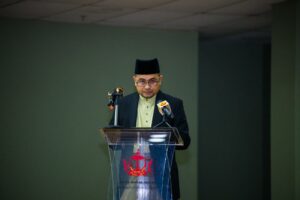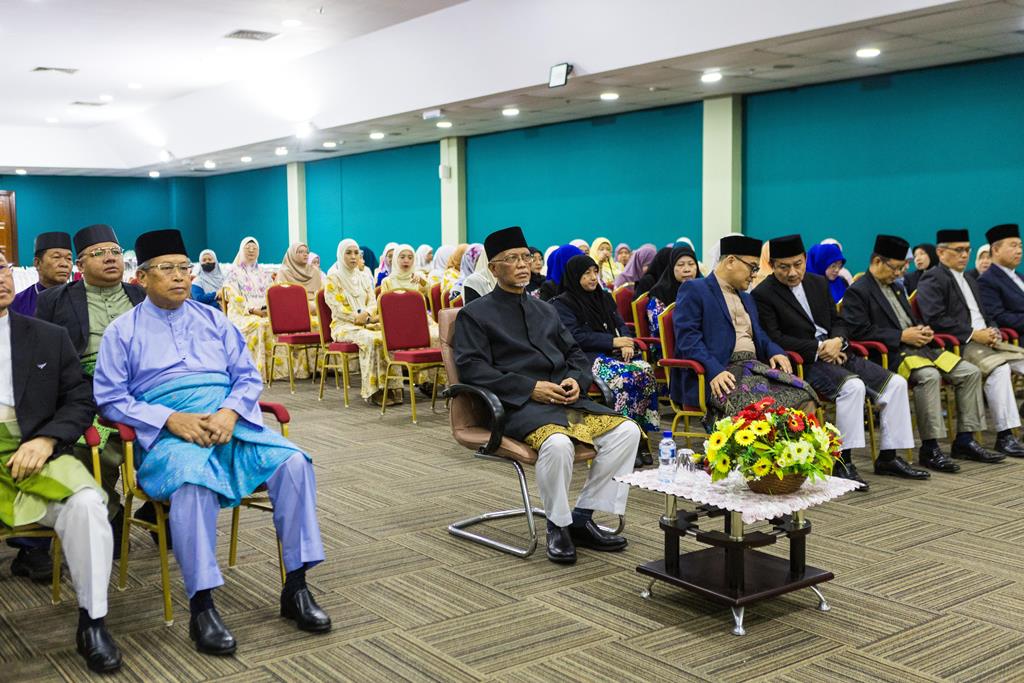The Syariah Courts of Brunei Darussalam recorded significant progress in case resolution and judicial services in 2024, with over 85 per cent of cases successfully resolved. This was highlighted by Acting Chief Registrar of the Syariah Appeals Court, Pengiran Mohammaddin bin Pengiran Haji Aliakbar, during the Annual Gathering of Syariah Court officials held on Saturday at the Supreme Court and Syariah Courts Building in Jalan Stoney.
The gathering served as a platform to reflect on past achievements, address challenges, and set the direction for 2025. According to the registrar, the lower Syariah Courts registered 1,340 cases, of which 86.1 per cent were resolved. The High Court completed 91.1 per cent of its 1,242 registered cases, while the Appeals Court concluded 37.5 per cent of the eight cases it handled.

In addition to judicial case resolutions, the Syariah Courts also processed 2,490 domestic marriages and 647 domestic divorces, alongside four annulments and 21 ruju registrations (reconciliations of divorced couples). These statistics demonstrate the courts’ continued role in handling matters related to Islamic family law.
Strengthening the Syariah judicial system
In his welcoming address, Pengiran Mohammaddin underscored the importance of collaboration and continuous improvement in upholding justice within the Syariah legal framework. He highlighted key accomplishments from the past year, including initiatives aimed at enhancing case management, public accessibility to justice, and service efficiency within the courts.
To strengthen judicial competency, the Syariah Courts actively engaged in staff training and development. A notable initiative was a two-day workshop on enforcement orders, held in partnership with the Syariah Judicial Department of Malaysia. Around 30 Syariah Court officials participated, gaining valuable insights into case handling and hearing procedures. This cross-border collaboration reflects ongoing efforts to elevate professional standards within Brunei’s Syariah judiciary.

Public access to justice was another major focus in 2024. The courts introduced consultation rooms and dedicated mail facilities for registered Syariah law firms, officially launched in November. These facilities aim to improve communication between legal practitioners and the courts, streamlining legal processes and enhancing service delivery for the public.
Additionally, recognising the strain caused by staff shortages at service counters, the Syariah Courts launched a pilot project in January 2025. Eighteen staff members from various departments were rotated to service counters to ensure smooth and efficient operations during peak hours. This initiative is expected to improve response times and reduce waiting periods for court users.
Looking ahead, the Syariah judiciary remains committed to building upon its achievements. Plans for 2025 include further improvements to infrastructure and services, particularly in Temburong District. The expansion of judicial facilities in the district is expected to enhance accessibility for residents and reduce the need for travel to the capital for legal matters.
Another priority is the resumption of joint training programmes with Malaysia’s Syariah Judiciary. These exchanges will provide Syariah court officials with further exposure to best practices and legal developments in the region, reinforcing Brunei’s commitment to upholding a fair and effective Islamic legal system.
Chief Syar’ie Judge Pehin Orang Kaya Paduka Seri Utama Dato Paduka Seri Setia Haji Awang Salim bin Haji Besar was the guest of honour. He commended the Syariah Courts for their achievements and reaffirmed the judiciary’s commitment to maintaining efficiency and upholding Islamic legal principles.
The event was attended by Syariah judges, registrars, and court personnel, reflecting the collective dedication to strengthening Brunei’s Syariah judicial system in the years ahead. – Fadley Faisal


